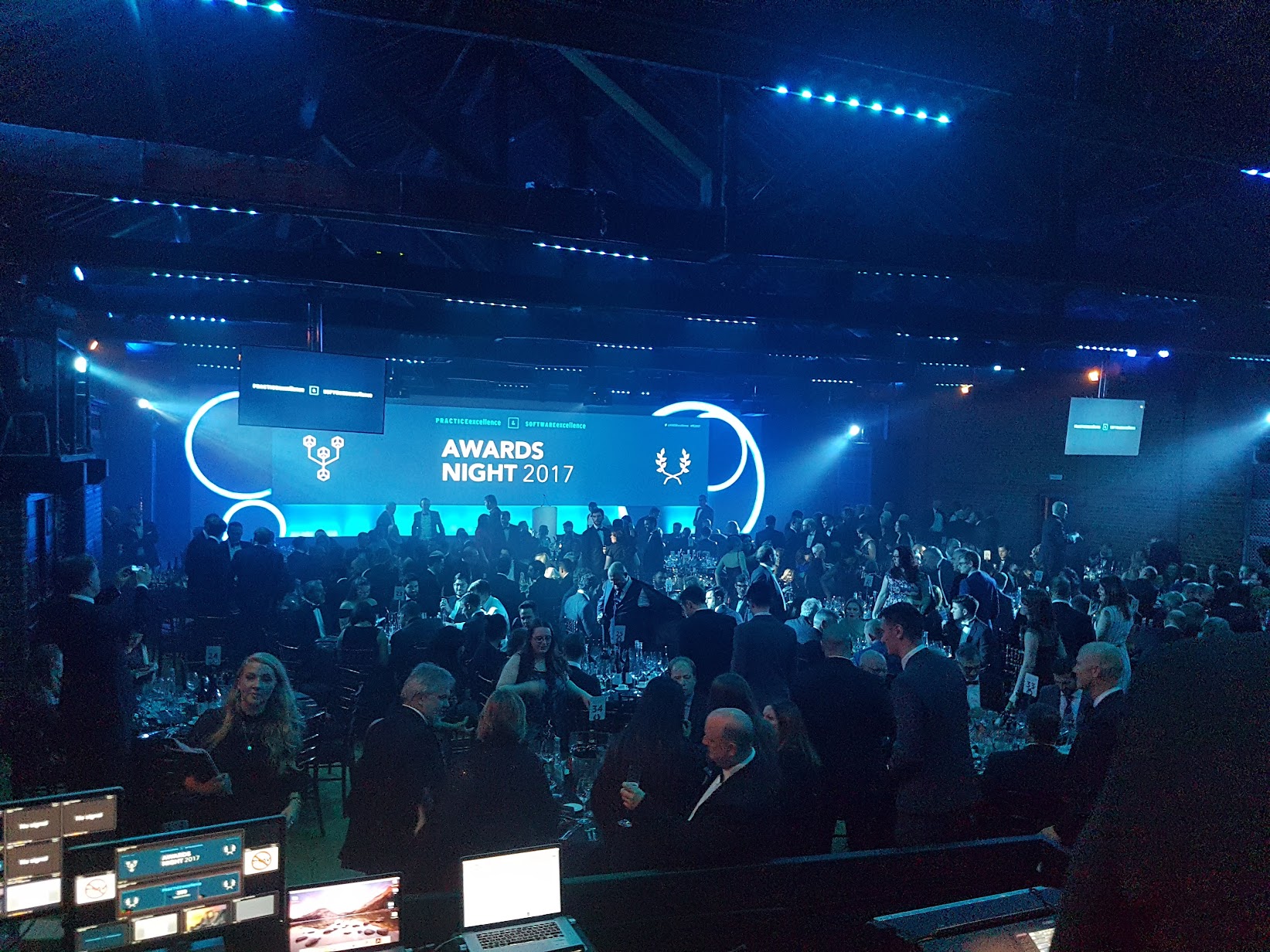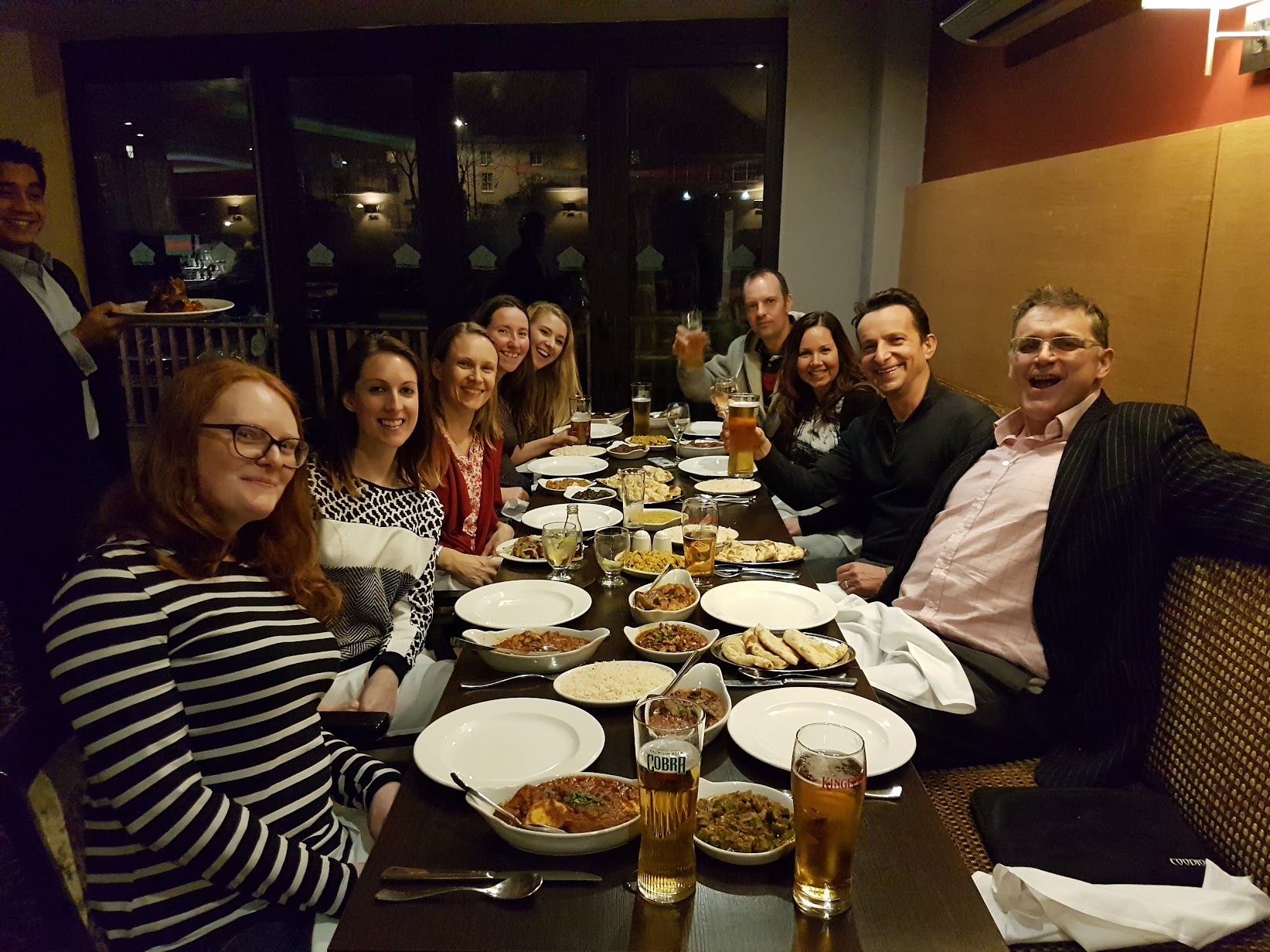
Book now to give your business a health check
Our health check will shine a torch around the inside of your sales and marketing set up.
We will identify frictions and highlight what support would help.
One of the questions I have been putting to guests over on the RE-TECH podcast, is to ask them what piece of advice they would have for their younger selves getting into the industry.
This got me thinking, and in a suitably self reflective mood, I thought I should put together some of my own thoughts on this topic.
Way back in 2005, a young and fresh faced Stu Pringle started his first B2B sales role. I guess looking back at 2005 me, I see a combination of naivety, hope and some very raw skills. I didn’t know what I didn’t know.
If I could have the discussion with my younger self, and the topic turned to what about a career in sales, this is what I would say.
A career in sales is nothing to be ashamed of
At times, there can be a stigma attached to sales. That in some way it is smarmy or dishonest. And let’s face it, a small minority of sales people don’t help themselves. However, for me it has been the gateway to a fantastic career. I have learned so much, had a huge variety in roles and met fantastic people on the way.
Today, I am proud to say I am in sales. In the last three years, I’ve built a small but thriving business that is steadily growing and maturing.
Sales can seem daunting. The fear of rejection. That’s normal
In the early days I was terrified of picking up the phone. I’m now many years into my own career in sales and sometimes my heart rate still goes up a bit when calling someone for the first time. And you know what, that’s ok. It is human. Yes, there are a rare few who are absolute machines and don’t seem to have any fear whatsoever. I believe they are the exception to the rule. You don’t have to be one of them to excel.
When you think about it, what is the worst that can happen? Someone says no. So what? The world will not swallow you up whole when that happens. Trust me.
Be wary of recruitment as a career (but don’t discount it)
There are always graduate level recruitment jobs going. Always. Why is that? Because recruitment is hard. It’s probably the section of the sales industry that is most tarnished by the spectre of a stereotypical silver-tongued sales person. Ask anyone who is a few years into their career and they will likely regale you of a bad experience with a recruiter. Equally, ask the same person if they know a good recruiter and they will always say yes. Good recruiters (definition = understand you, the client and the match) are worth their weight in gold.
My view is this: Taking a recruitment role adds an extra hurdle to the process. Not only are there the usual barriers to sale but there is an additional one – proving that you are one of the good ones and not a d!ck. I found that tiring.
I did 18 months in executive search. It was during the financial crises and it was hard yards. The two founders were amazing managers (you know who you are) and the team were awesome. Looking back, that was a really formative time and there’s a heap of skills learned then that I still use today.
I’d look myself in the eye and say do a role in recruitment early, take the experience but unless you feel ‘the calling’, go on to other things. (Chapeau to those who stick it out for the long haul, you are made of stern stuff!)
It helps if you like the product
It is definitely easier to sell the thing if you have some sort of affinity with what you are selling. Let’s not confuse this with a ‘follow your passion’ mantra. I’ve been seeing some good debates on this across the platforms and I fall into the camp that a pure ‘follow your passion’ mentality is either coming from a place of privilege or has acknowledged in some shape or form that earning a certain level of income is not a priority.
“I sit in the ‘what you do enables you to follow your passions.’ I am ok with that.”
So the thing you sell doesn’t have to be your favourite thing. But it can be something you believe in. If you can get into that mindset, it makes a career in sales so much easier. I’ve been on both sides of this, having sold exhibition stand space for a big data conference which was not much fun, through to today where I am fortunate to spend nearly all my time with tech startups in renewables.
“The people I work with today are supremely talented and driven by purpose. They are geek chic and saving the planet at the same time. And I am here for it.”
Are you nodding along while reading this?
B2B is fun and rewarding (yes, including the £)
Speaking to younger folks (ha! That makes me sound old), one of the trends I see is a gravitation towards B2C in the early career. I get it. It’s more sexy than some piece of cloud software. I have found a career in B2B sales hugely rewarding. The deal sizes are big (see more below), the sale is complex and there are smart people involved all along the way.
And yes, B2B sales can be a well paid role. Of course, it is not without its stress but for sure it’s been a rewarding journey for me so far.
“One word of warning here. Beware the complex commission system, the best ones are the simple ones.”
There is NOTHING wrong with wanting to pursue career in B2B sales. (Or a marketing one, for that matter).

Me, keeping it full professional back in 2009. Riding to work on a Monday in skate shoes with Sunday’s race board still on the bike. Nice shirt though.
Sell big ticket stuff
I believe it is less stressful to sell in £100k to an enterprise business than £2,500 to an owner-managed SMB. Why? Because, with the latter it is their money and every penny counts. The old adage of the £100k client sending the note that just says ‘paid, thanks’ is absolutely true. I am not an easy person to sell to. I am that classic business owner persona, who put in their own money at the start.
My advice to my younger self would be along the lines of
“Don’t be shy of going after a role early that sells lumpy stuff. There is no need to ‘graduate’ up the deal size ranks. Start high, stay high.”
Don’t be desperate to become an AE
Something that baffles me on Linkedin is this whole SDR to AE in 18 months thing. (Sales Development Representative → Account Executive). Why is being AE a better thing, a superior thing? What is wrong with becoming the expert in finding the new business opportunities?
And, think on this, moving over to AE and taking on account management is not some kind of easy street. I’ve been there, I spent several years leading an account management team in a busy digital agency. You think prospects give you a hard time, wait until you get the full brunt of client pain. 😉
“Wanting to stay on the hunter side of the business is totally OK. It is a hugely valuable skill.”
Get into digital as early as possible
This is my story, This is what I would tell my younger self. Others will disagree.
In my own journey, I’ve taken great benefit from building up digital skills early. By this I don’t mean photoshop skills, I am referring more a surface level understanding of how things work in B2B sales and marketing – be it the power of brand, being sympathetic to the idea of a buyer journey, to knowing my way around the the basics of ad-tech, digital platforms, content marketing and so on.
“A little bit of knowledge of the overall game can go a long way.”
I do wish my Photoshop skills were better btw.
Travel more
I didn’t realise early in my career how in demand sales skills are globally. When I was younger (pre-kids), I would have loved to have gone and worked near the Alps for a few years. I should have done it, got myself to Zurich, or wherever, and banged on doors to ask for available roles.
Something good would have come of it, and I would be a much better skier than I am today.
Go agency side
My pace of learning was at its fastest when working in media agencies. Absolutely no question about it. Why was this? Multiple clients, multiple campaigns combined with a near constant need to evolve the offering to keep the revenues coming in and fend off whatever the new challenger was.
I made some great friends during agency time many of whom have gone to do amazing thigs (more on network below).

Post-pitch train beers with the legend that is Alex Tucker. One of the finest genre of beers.
Go client side
For a well rounded career in sales, it is also good to spend time client side. By this, I mean specifically inside a start up or scale up brand that sells a product or service. Getting an understanding of the processes and the way that kind of business operates is more good stuff for that high level knowledge.
Why no comment here about going into the Enterprise? Really simple, I’ve not done it. All my experience is in small to mid size businesses, up to £20 million turnover. Would it have been good for me to have spent time with a big name? Possibly. Do I feel it’s held me back? No… I just make sure I don’t believe my own BS and now don’t consult for businesses where I don’t have relevant experience.

Big chunks of my early career were in and around B2B events. Having an understanding of how these work behind the scenes is a big help.
Build your own stuff
The side hustle concept is super popular these days. Sometimes on LinkedIn you can be made to feel inadequate for not crushing it 24/7. Just ignore that stuff, it’s toxic. I do encourage finding a little bit of space to try something on the side, even if it’s just a little experiment. It doesn’t have to be work related and it certainly does not have to be successful for it to be useful. For example, I used to play around alot with Napster and Limewire back in the day (yes I am old) and that means today’s audio editing software like Podcastle is an absolute dream to use. It’s all the things you wanted back then, in a drag and drop.
Similarly, I’ve mucked about with WordPress loads over the years. I’ve tried all sorts of things, from a mountain bike review website through to a blog for our honeymoon or an adventure sports PHP forum (you won’t find any of these, long since pulled offline). None of those, if judged in isolation were particularly successful, but it gave me enough so when I was in a web agency I could keep up with conversations with development team when things went all FTP, custom CSS or HTML. This proved its value again when spinning up my own sites for Make the Break. Knowing your way around hosting and some simple front end development is mega useful when bootstrapping your own businesses.
Be the fly fisher, not the trawler
Back on the topic of sales. I would warn my younger self to be incredibly wary of the tempting world of mass automation, generic email blasts (no one likes a blast) and data scraping.
I believe, if you are taking B2B sales seriously, there is MUCH more benefit of going down the quality of quantity route. Don’t spam 1000s of people, instead research a select few and approach them with specific reasons for getting in touch. Do this every day. Do it for week after week. The pipeline will come.
If you hate it, leave
Young Stu definitely hung around in a couple of places too long because of the whole ‘it won’t look good on the CV thing.’ One of those isn’t even on my CV and hasn’t been for years. If you can explain the reasons for a quick move in a rational way, then move, life is too short.
Of course there is a caveat here. Don’t leave at the first sign of a challenge. Dig in and do what you can to create an environment that is good for you and good for the company. If you know deep down that is an impossibility then pull the cord.
Be tenacious but know when you’ve been told no
I suppose this is the client facing version of the caveat mentioned above. In sales there is an absolute need to be tenacious. I look back on large five and six figure annual revenue deals that were preceded by months of no response. If you believe the identified business is very likely going to benefit from your stuff then keep going.
Equally if the top people in the account have told you it’s a no, and their reasons are sound, then move on. By all means play the long game, find out when that contract is up for renewal in the years ahead and set up the forward task to reconnect. But if it is a no for now, it is a no for now. Go chase other opportunities.
Say ‘I don’t know’ when you don’t know
OMG this. Don’t blag it. People are smart, they see through it and you lose credibility. If you are asked a question, say you don’t know but you’ll find out. Even if its something you should know.
“Do. Not. Blag. It.”
Do it this way and the first person will appreciate it and you’ll be ready for the next person.
Network, network, network
2022 felt like the year of personal brand. I’ve seen a whole industry spring up around it with some smart peeps jumping on this as a service in itself.
If you want to build a career in sales, your personal brand matters. What does this mean? Well, firstly you need to get out there and meet people in your industry. People you have met face to face are many times more likely to pick up your call when it comes in.
If you are someone who chooses to drink (I do) then just be careful. A good mantra is to remember that it is work, it’s not play. A drunken moment could stick and be what you are remembered for, for years to come. Having said that, if you do drink a bit too much and do something a bit silly but harmless don’t beat yourself up. We’re human. Just try not to do it again, eh.
Personal brand in 2023 absolutely extends into how visible you are in the company, in the industry and across digital platforms. I can now see a direct correlation in my own career when I took the conscious decision to chair company meetings, speak at events, blog, publish on LinkedIn, ask to be on webinars etc etc. Do this. It’s not scary. Promise.

For many years, I was custodian of the mighty Sift curry club. Just remember, it’s still work.
Don’t take the L’s personally
It is a simple fact of life that not every deal is going to come in. The reasons can be both inside and outside of your control.
Do not get down when the deal doesn’t land. For sure, make the time to objectively pick through the chain of events and take on the learnings if there are improvements for the future. Do not dwell on the loss, sh*t happens, move on.
(And call them back six months later and ask if everything is going ok with their chosen option – you never know, they might want you back in!)
They are just people
One of the things I did early in my career was put senior management on some sort of a pedestal. Like they were mythical beings who could slay this young pup at any moment.
It’s nonsense of course. Senior leaders are hugely talented but usually with that comes a high degree of EQ. They understand what you are trying to do. And we are all just people, we have good days and bad days.

I now run my own quarterly meet up in Bristol. It’s not that hard to do and has helped me meet lots of new people.
Be memorable
I learned quickly just to tell it how it is. Like, I have said previously, just talk normally.
People are smart, don’t try it on and you’ll be fine. Just be you. You’re just kidding people otherwise.
It’s going to be ok
And finally (because this is me, talking to me), I would say worry less. What you think is a huge drama is actually just a blip. It’s going to be ok.
Like this blog, why not listen
to the podcast?
Chatting leaders in renewables about all things technology.

